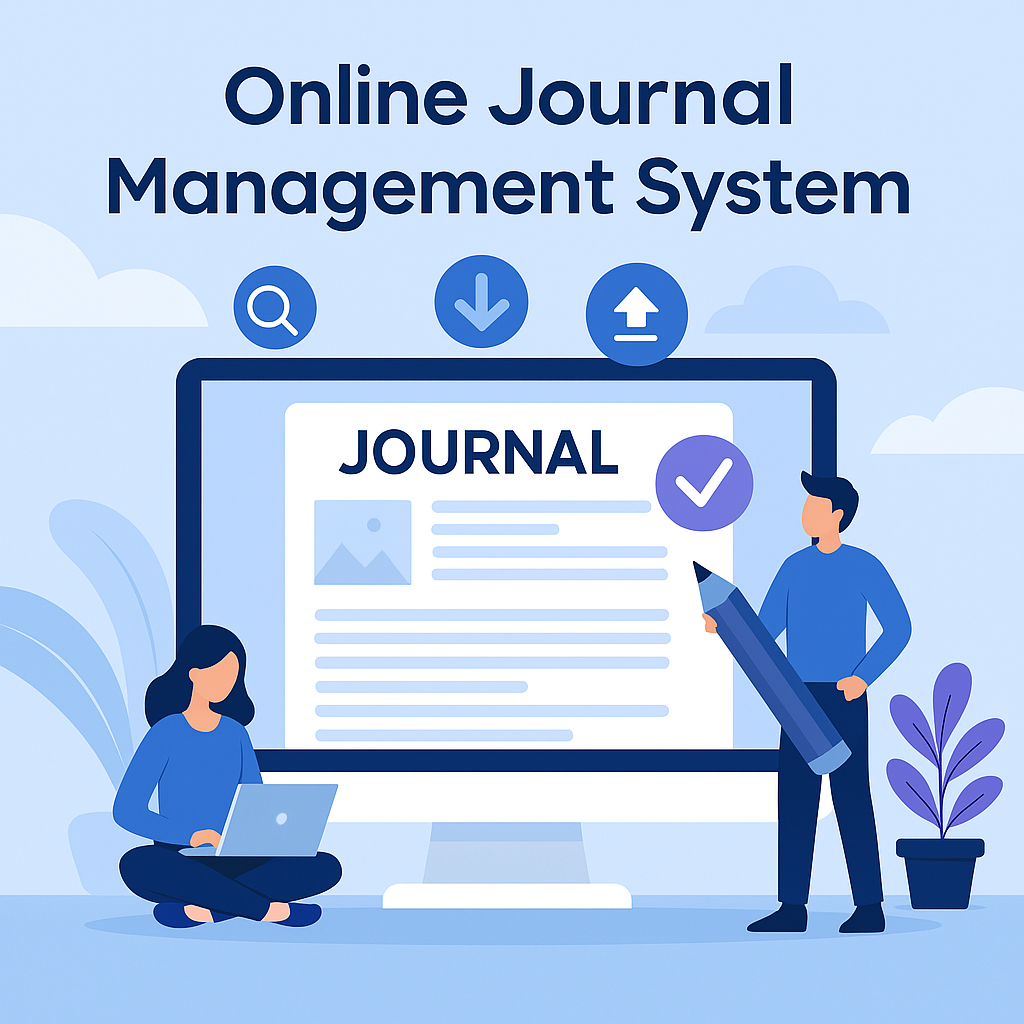Introduction
In the digital era, academic publishing has evolved significantly, with Online Journal Management Systems (OJMS) transforming the way journals operate. These systems provide a comprehensive platform for managing submissions, peer reviews, editorial workflows, and publishing processes, ensuring efficiency, transparency, and accessibility.
What is an Online Journal Management System?
An Online Journal Management System is a web-based platform designed to streamline the publication process of academic journals. It allows authors, editors, and reviewers to collaborate seamlessly, automating various tasks such as manuscript submission, plagiarism checks, and publication tracking.
Key Features of an Online Journal Management System
- Manuscript Submission and Tracking – Authors can submit their research papers online and track their status throughout the review process.
- Peer Review Management – The system facilitates blind or double-blind peer reviews, ensuring a fair evaluation process.
- Editorial Workflow Automation – Editors can assign reviewers, monitor deadlines, and make informed decisions on manuscript acceptance or revision.
- Plagiarism Detection Integration – Many systems include plagiarism-checking tools to maintain research integrity.
- Automated Email Notifications – Users receive timely alerts regarding submission status, review deadlines, and publication updates.
- Open Access Publishing – Supports the publication of articles with open access, making research more widely available.
- Indexing and Archiving – Integration with indexing services like DOI, CrossRef, and Google Scholar enhances visibility and accessibility.
- Multi-Language Support – Facilitates global reach by supporting multiple languages.
- Analytics and Reporting – Provides insights into submission trends, review timelines, and readership engagement.
Benefits of Using an Online Journal Management System
- Efficiency: Reduces manual handling, speeds up peer reviews, and minimizes administrative workload.
- Transparency: Enables clear communication between authors, editors, and reviewers.
- Accessibility: Allows global collaboration, enabling researchers from different locations to contribute and review.
- Cost-Effective: Reduces printing and mailing expenses, making publishing more sustainable.
- Enhanced Credibility: Ensures adherence to ethical standards and high-quality research publication.
Choosing the Right Online Journal Management System
When selecting an OJMS, consider factors such as user-friendliness, customization options, integration capabilities, security features, and cost. Popular options include Open Journal Systems (OJS), Scholastica, and Editorial Manager.
Conclusion
An Online Journal Management System is a game-changer for academic publishing, bringing automation, efficiency, and credibility to the research dissemination process. By leveraging such a system, journals can enhance their operational workflows, improve researcher experiences, and contribute to the advancement of knowledge.
Whether you are a researcher, editor, or publisher, adopting an Online Journal Management System can significantly improve the efficiency and impact of academic publishing.
Front End Demo
https://maventricksdemo.co.in/JMS
Admin Panel Demo
https://maventricksdemo.co.in/JMS/index.php/administration
Please contact us via email to [email protected] or Whatsapp at +91 9087949822 to get more details.


